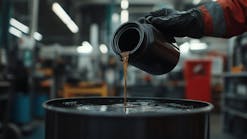The world has changed, and speed of service is now more important than ever. Consumers expect things to be faster today than they ever have. All of us have ordered something on Amazon Prime, probably as recently as this week. Twenty years ago, two-day shipping would have been hard to imagine. Now it’s what we expect.
Our packages arrive faster with Prime, our food arrives faster with DoorDash, and we can stream any show or movie we want to watch immediately on Netflix. Gone are the days of going to Blockbuster to pick out a movie. Even a two-hour movie feels long compared to the quick clips and videos of TikTok. With all of these changes in society, we have all been rewired to expect things faster.
In the quick lube industry, this expectation has put more pressure on operators to move quickly and to improve their service times. At Oilstop, we call this need for speed in our bays our “sense of urgency." Our sense of urgency is the feeling in our service centers when our guests notice that our team is moving quickly to work on each vehicle.
Our team isn’t frantically rushing, skipping steps, or cutting corners. Instead, we are moving with a purpose and completing each step of our 33-Point Service process with urgency. Our goal is to ensure guests know we are moving quickly to serve them and to keep their bay time low.
The great thing about building a sense of urgency is it has benefits besides just delivering on your guest’s expectation of speed. Creating a sense of urgency in your bays will help reduce your bay time, open up more space to serve additional cars, and grow your car count. The impact of moving quickly scales throughout the day.
If your team saves two minutes per car by moving at a faster pace, the average quick lube will free up 60 minutes of additional time every day. How many more cars could your team serve in that time? Not only does a sense of urgency in your store improve your guest experience, but it will also increase your car count.
So, how do you create a sense of urgency in your service center? At Oilstop we like to say, “Our managers make it happen.” Your leaders in the store are responsible for setting the expectation of urgency and holding that expectation with the team. Training a sense of urgency with your team involves teaching them to always be planning their next move.
If you know what you are going to start next once you complete your current task, you won’t delay in moving straight to it. Creating patterns and workflows for your team to follow for each service will help develop a habit of the process over time, which will allow them to develop proficiency and ultimately allow them to move faster.
Oilstop’s founder Larry Dahl was famous for encouraging our team to “always work at an 80 car per day pace.” When each of our service center teams works like they are going to process 80 cars that day, it establishes a clear sense of urgency. Slower service centers often will naturally reduce their pace to match the sporadic car count through the day, instead of pushing out cars at their best possible bay times. Working at an 80 car per day pace, you are always ready to serve the next guest who arrives and every guest’s experience and perception of the speed of your service will be positive.
A sense of urgency is not about taking shortcuts; it’s about training your team to move more efficiently while performing tasks and in-between tasks. If we are to provide excellent service for our guests, we need to honor their time. Creating a model where your service center focuses on a sense of urgency will help your team adapt to meet the expectations of today’s consumers and help you grow your business.





